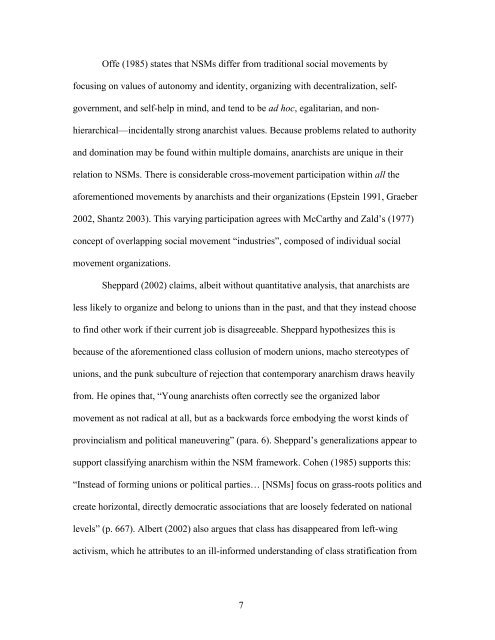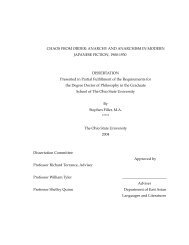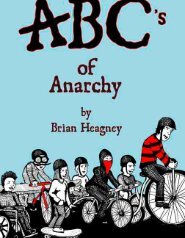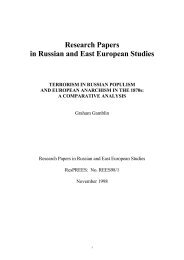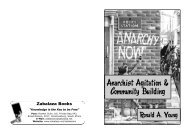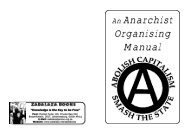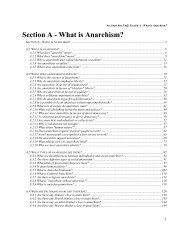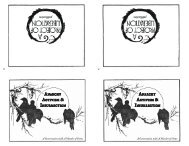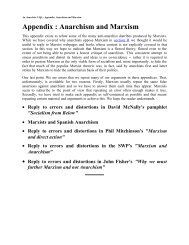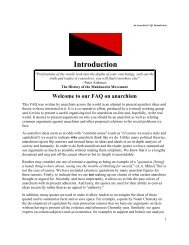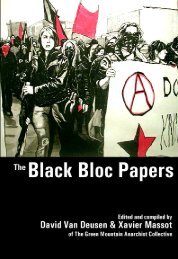Anarchists and Labor Unions - Infoshop.org
Anarchists and Labor Unions - Infoshop.org
Anarchists and Labor Unions - Infoshop.org
Create successful ePaper yourself
Turn your PDF publications into a flip-book with our unique Google optimized e-Paper software.
Offe (1985) states that NSMs differ from traditional social movements by<br />
focusing on values of autonomy <strong>and</strong> identity, <strong>org</strong>anizing with decentralization, selfgovernment,<br />
<strong>and</strong> self-help in mind, <strong>and</strong> tend to be ad hoc, egalitarian, <strong>and</strong> nonhierarchical—incidentally<br />
strong anarchist values. Because problems related to authority<br />
<strong>and</strong> domination may be found within multiple domains, anarchists are unique in their<br />
relation to NSMs. There is considerable cross-movement participation within all the<br />
aforementioned movements by anarchists <strong>and</strong> their <strong>org</strong>anizations (Epstein 1991, Graeber<br />
2002, Shantz 2003). This varying participation agrees with McCarthy <strong>and</strong> Zald’s (1977)<br />
concept of overlapping social movement “industries”, composed of individual social<br />
movement <strong>org</strong>anizations.<br />
Sheppard (2002) claims, albeit without quantitative analysis, that anarchists are<br />
less likely to <strong>org</strong>anize <strong>and</strong> belong to unions than in the past, <strong>and</strong> that they instead choose<br />
to find other work if their current job is disagreeable. Sheppard hypothesizes this is<br />
because of the aforementioned class collusion of modern unions, macho stereotypes of<br />
unions, <strong>and</strong> the punk subculture of rejection that contemporary anarchism draws heavily<br />
from. He opines that, “Young anarchists often correctly see the <strong>org</strong>anized labor<br />
movement as not radical at all, but as a backwards force embodying the worst kinds of<br />
provincialism <strong>and</strong> political maneuvering” (para. 6). Sheppard’s generalizations appear to<br />
support classifying anarchism within the NSM framework. Cohen (1985) supports this:<br />
“Instead of forming unions or political parties… [NSMs] focus on grass-roots politics <strong>and</strong><br />
create horizontal, directly democratic associations that are loosely federated on national<br />
levels” (p. 667). Albert (2002) also argues that class has disappeared from left-wing<br />
activism, which he attributes to an ill-informed underst<strong>and</strong>ing of class stratification from<br />
7


